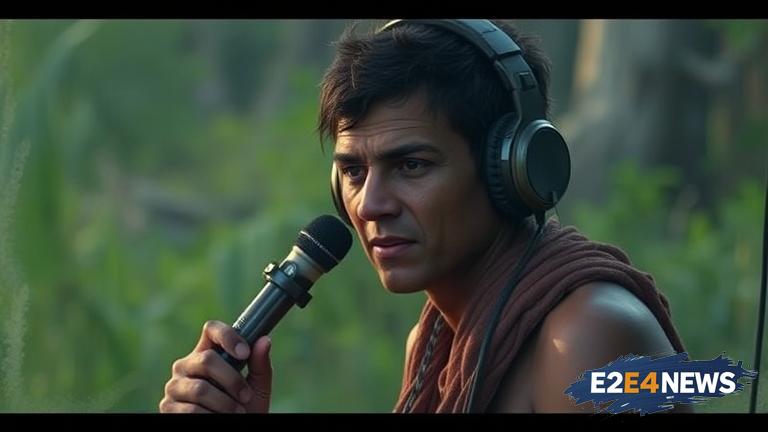A recent report has revealed that missionaries are employing secret audio devices to evangelize to Brazil’s isolated indigenous peoples. This covert approach has raised concerns among anthropologists, indigenous rights activists, and government officials, who argue that such methods can be damaging to the cultural and social fabric of these communities. The use of hidden audio devices, which can play Christian messages and prayers, has been criticized for being a form of cultural imperialism. Critics argue that this approach disregards the cultural and spiritual beliefs of the indigenous peoples, and can lead to the erosion of their traditional practices and values. The Brazilian government has laws in place to protect the rights and interests of isolated indigenous communities, including the prohibition of contact with outsiders. However, it appears that some missionaries are finding ways to circumvent these laws and regulations. The use of secret audio devices is just one example of the creative methods being used by missionaries to reach these isolated communities. Other tactics include the use of drones, satellite technology, and even bribing local officials to gain access to restricted areas. The motivations behind these efforts are complex and multifaceted, driven by a mix of religious zeal, cultural paternalism, and a desire to ‘save’ the indigenous peoples from what is perceived as a primitive or heathen way of life. However, many experts argue that such approaches are not only ineffective but also harmful, as they can disrupt the delicate social and cultural balance of these communities. The history of missionary work in Brazil is long and complex, with many examples of well-intentioned but ultimately damaging interventions. The legacy of colonialism and imperialism continues to shape the relationships between outsiders and indigenous communities, with many Brazilians still viewing the indigenous peoples as ‘backward’ or ‘uncivilized’. The current controversy over the use of secret audio devices has sparked a wider debate about the ethics of missionary work and the need for greater cultural sensitivity and respect. Many are calling for a more nuanced and informed approach, one that prioritizes the rights and interests of the indigenous peoples themselves. This includes recognizing and respecting their cultural and spiritual beliefs, as well as their right to remain isolated and untouched by the outside world. The Brazilian government has a critical role to play in regulating and monitoring missionary activity, and ensuring that the rights of indigenous communities are protected. However, this will require a significant shift in attitudes and approaches, one that prioritizes the well-being and dignity of the indigenous peoples above the interests of outsiders. As the debate continues to unfold, it is clear that the use of secret audio devices is just the tip of the iceberg, and that a much broader and more complex conversation is needed about the ethics of missionary work and the future of Brazil’s isolated indigenous communities. The international community also has a role to play, in terms of providing support and solidarity to indigenous rights activists and organizations. This can include advocating for greater protections and safeguards, as well as promoting cultural sensitivity and awareness about the importance of preserving indigenous cultures and traditions. Ultimately, the fate of Brazil’s isolated indigenous communities will depend on the ability of governments, missionaries, and other outsiders to prioritize their rights and interests, and to approach these communities with respect, sensitivity, and a deep understanding of their cultural and spiritual beliefs. The use of secret audio devices is a symptom of a much larger problem, one that requires a fundamental shift in attitudes and approaches towards indigenous communities. By working together and prioritizing the well-being and dignity of these communities, it is possible to build a more just and equitable future for all. The road ahead will be long and challenging, but it is clear that the use of secret audio devices is a wake-up call, one that requires a concerted effort to protect the rights and interests of Brazil’s isolated indigenous peoples.
